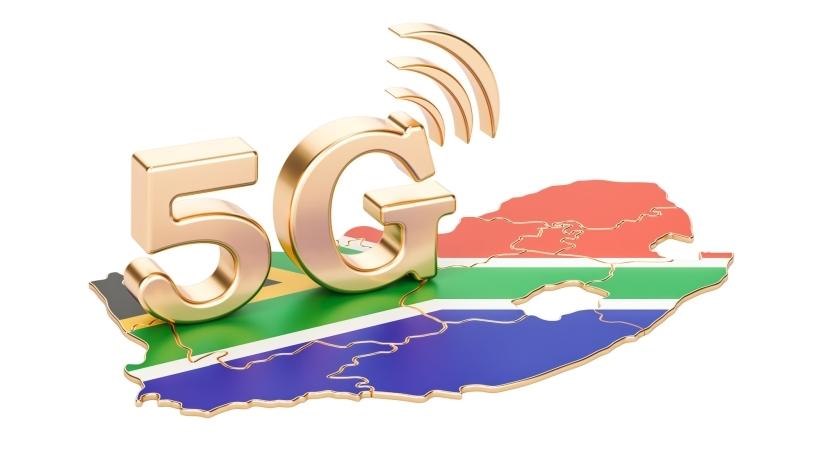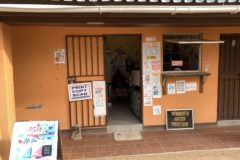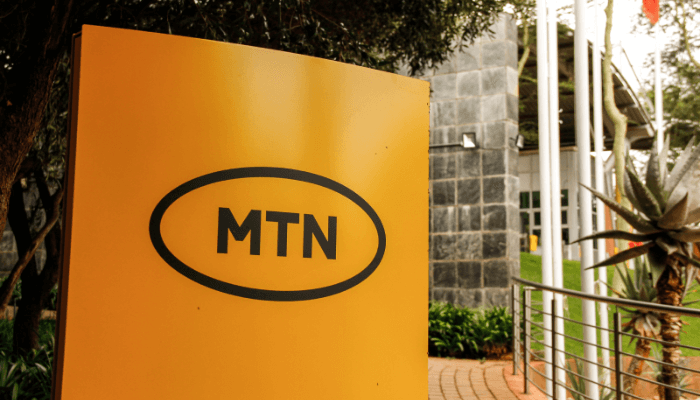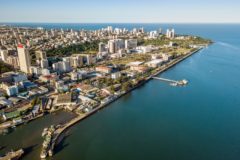In March, the Independent Communications Authority of South Africa (ICASA) held the long-awaited broadband spectrum auction, which saw six network providers—Rain, Vodacom, MTN, Telkom, Liquid Telcoms and Cell C—bid for frequency spectrum in various bands.
The network providers would use the acquired spectrum to improve the quality of their 4G services and to offer their customers 5G services which require frequency spectrum in the 700MHz to 3.5GHz range.
The auction was originally scheduled for as far back as 2010 but kept getting delayed because of various issues, including court cases involving the bidders. When it finally happened, it was a huge success. ICASA raked in R14 billion from the bidding network operators, surpassing its target of R8 billion.
With the necessary frequency now available to the networks to deploy 5G services, it is interesting to see how they will use it to contribute towards improving South Africa’s 5G penetration rate which stood at a largely improved but still measly 7.5% per early 2022 figures in largely concentrated in urban areas.
Rain
Last week, Rain announced that it was launching a mobile 5G service early next year to add to its current fixed 5G service which it initially rolled out in 2019.
At the spectrum auction in March, the data-only mobile network operator purchased P1.43 billion worth of spectrum and its shareholder African Rainbow Capital (ARC) stated that the operator’s 4G and 5G plans for the spectrum were two of the reasons it valued the company at R17.9 billion.
In its later retracted announcement in August about making a merger offer to the board of Telkom, Rain stated that it believed the combined 5G assets of Telkom and itself would create a 5G powerhouse in the country and present a challenge to the Vodacom and MTN duopoly.
In September 2019, after rebranding from Wireless Business Solutions (WBS) following a multibillion-rand investment in network infrastructure in 2017, Rain became Africa’s first telco to deploy a commercial 5G network. It currently has the widest 5G coverage in the country.
Vodacom
Vodacom launched its commercial 5G network in Johannesburg, Cape Town, and Pretoria in May 2020. It was the first 5G network in Africa to support both mobile and fixed wireless services (Rain’s 5G network only provided fixed services).
The network operator, which is South Africa’s biggest by subscriber base, was able to build the 5G network as a result of being allocated a temporary spectrum by ICASA during the COVID pandemic as a way to alleviate network traffic which had surged as a result of lockdowns.
In the March auction, Vodacom was the biggest spender with over R5.3 billion spent on frequency spectrums in various bands. Vodacom has also inked a 5G roaming deal with Zimbabwe-based telco, Liquid Telecom, which has access to the 3.5 GHz spectrum. Between Q1 2021 and Q1 2022, Vodacom’s 5G availability has also grown from 1.4% to 6.4%.
MTN
Like Vodacom, South Africa’s second largest mobile network operator MTN deployed its first 5G services using the temporary spectrum allocated by ICASA during the pandemic. In June 2020, it launched 100 5G sites across Johannesburg, Cape Town, Bloemfontein, and Port Elizabeth.
In the spectrum auction, MTN was the second largest spender after Vodacom with R5.1 billion spent on various frequency bands. Before the auction, to supplement the temporary spectrum, MTN had been utilizing dynamic spectrum sharing to provide 5G services which has seen its 5G coverage grow from 1.0% to 9.7% between Q1 2021 and Q2 2022.
As part of the network operator’s Modernization of Network South Africa (MONZA) project, MTN is planning to extend its 5G coverage to 25% of the population by the end of 2022, and 60% by 2025.
Telkom
Despite having a pending court case against ICASA in which it is suing the regulator for the terms of the auction which it deemed not favorable to it, Telkom spent over R2 billion in the March spectrum auction.
The network operator, which is 40% owned by the government of South Africa, previously reported to the country’s Competition Tribunal that the 5G roaming agreement between Vodacom and Rain would entrench Vodacom’s position as a dominant player in the mobile network operator market.
After Rain’s merger offer to Telkom in August to create a 5G powerhouse and provide significant competition to Vodacom and MTN, Telkom stated that should Rain make a formal (and legal) offer in the future, it would be happy to hear it.
However, last month, CEO of Telkom Serame Taukobong stated that despite 5G rollout being high up the company’s priorities, it would not “go crazy aggressive” like the other network operators in the rollout. The company has deployed 5G sites in various parts of South Africa but they are not yet commercially available.
Speaking at the Southern Africa Telecommunication Networks and Applications Conference (SATNAC), Taukobong said that Telkom was more focused on ensuring that its 4G ecosystem, which most people rely on, remained strong and ubiquitous.
He also stated that the company will be more focused on providing enabling fibre infrastructure to enable deployment of 5G networks by other mobile network operators like Rain, Cell C, MTN and Vodacom.
Liquid Telecoms
In January 2020, the Zimbabwe-based pan-Africa network operator announced the launch of the first 5G wholesale roaming service in South Africa.
Liquid stated that it would use its 3.5GHz spectrum asset to build the 5G network and provide nationwide 5G wholesale services to various players including mobile network operators and ISPs.
Vodacom was the first to strike a roaming deal with Liquid for its spectrum, using it to launch Africa’s first fixed and mobile 5G network in May 2020.
In the March auction, Liquid paid the least amount for spectrum out of all the bidders, parting ways with R111 million for 3.5GHz spectrum.
The company’s CEO Deon Geyser said the company will use the spectrum to build a 5G network aimed at enabling automation in industries such as manufacturing and mining. He added that the company has no plans to enter the consumer market directly as that would require considerable investments in a product distribution platform.
Cell C
The network operator, which has been facing a lot of operational deficiencies resulting from its mounting debt, acquired R288 million worth of spectrum in the ICASA auction.
Cell C and Telkom are the only network operators in South Africa who have not yet to rolled out either fixed or mobile 5G services.
However, the company’s chief technology officer Schalk Visser said in an interview with MyBroadband that customers should expect a roll out very soon.
“We are in discussions with our infrastructure partners and close to the implementation of 5G services for our customers,” Visser said.
Going ahead
The ICASA spectrum auction was a major catalyst for fast-tracking the deployment of 5G coverage in South Africa. With network operators now having access to spectrum, they will be able to roll out their various 5G strategies.
Rain will be focused on maintaining the advantage it acquired from making an early start in fixed 5G. The network is also aiming to make a play for mobile 5G next year, challenging Vodacom and MTN in that space.
Should the Telkom-Rain merger deal work out, the resulting entity would be a challenger to Vodacom and MTN’s current dominance in the mobile 5G arena. As one of the market leaders, Vodacom’s procurement of spectrum will allow it to reduce costs incurred from leasing spectrum from Liquid. This will allow it to make more investments on developing and deploying 5G services through its network.
While Vodacom, MTN, Rain and Cell C look set to be focused on rolling out 5G services and products for the commercial market, Telkom and Liquid’s strategies look to be mainly focused on providing the necessary fibre infrastructure to support the networks’ 5G networks.





















